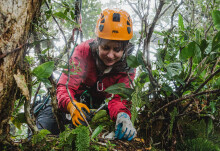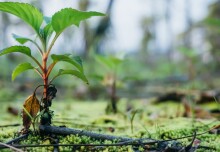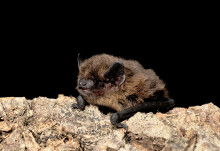

News in Brief
Swimming with sharks and student support: News from the College
Here's a batch of fresh news and announcements from across Imperial.



Swimming with sharks and student support: News from the College
Here's a batch of fresh news and announcements from across Imperial.


AI-enhanced audio monitoring shows where monkeys won’t go
By monitoring the calls of spider monkeys, researchers have shown what level of human activity they will tolerate, helping guide conservation.


Soils forming on the branches of trees are an overlooked forest habitat
A study on ‘canopy soils’ on old trees in Costa Rica shows they are important habitats and carbon stores that cannot easily be replaced.


Imperial researcher awarded £1m for magma-mapping project
Project EARTH will map magma and assess the risk of solar storms on energy supply.


Audio
Podcast: Monkey sex, walking robots, and DNA health
In this edition: We learn how same-sex sexual behaviour is common in macaques, how to teach robots to walk like dogs, and how DNA affects your health.


How forests can become more effective ‘natural climate solutions’
To be more effective, projects that use forests to remove carbon dioxide from the air need to improve stakeholders’ confidence in their viability.


Study shows same-sex behaviour is widespread and heritable in macaque monkeys
Observations of a wild colony of macaques over three years show same-sex sexual behaviour among males is widespread and may be beneficial.
 1
1


Pollinator tracking and decoding obesity: News from the College
Here’s a batch of fresh news and announcements from across Imperial.


NERC Invites Proposals for Second Round of Treescapes Fellowships
The Future of UK Treescapes programme, with support from NERC, ESRC, and AHRC, is pleased to announce the second round of Treescapes Fellowships.


Monitoring British bats can help identify coronaviruses with pathogen potential
Researchers who found novel coronaviruses in UK bats say genetic surveys of the viruses should be regularly conducted.
 1
1